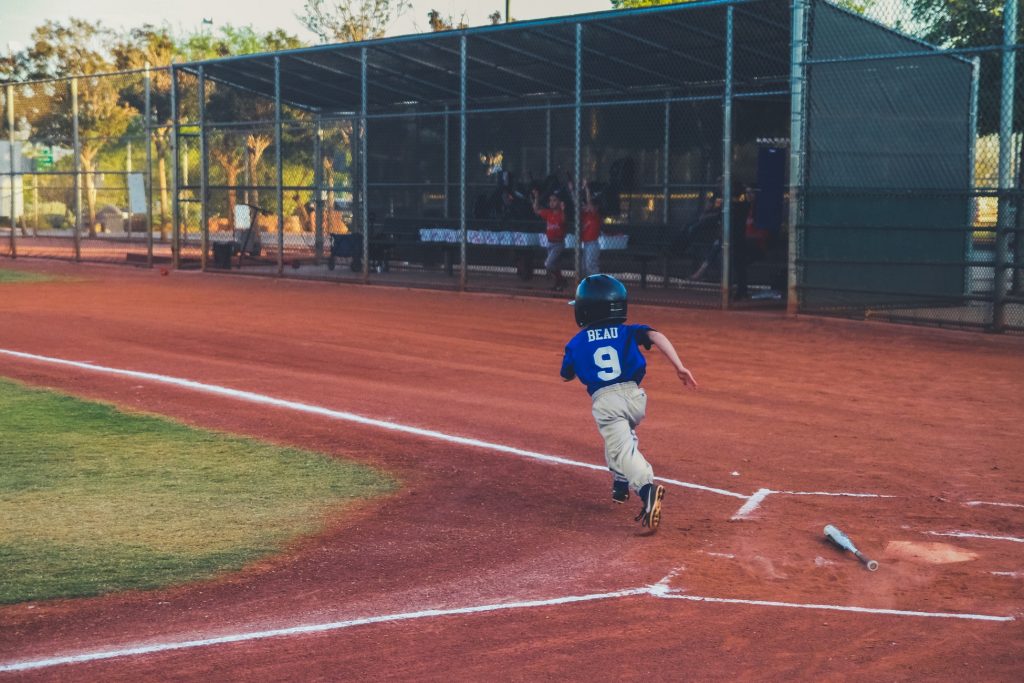
It is very likely that most of us have participated in youth sports at one time or another. Some of us stopped after our preschool tee-ball league while others continue to play to this day. Regardless of how long you played sports or at what level of competition you played at, the statistics show that youth sports have tremendous benefits for the children who play them – both in the present and in the future.
The immediate and most obvious benefits are the healthier lifestyle choices that come with participating in sports. The obesity rate for children ages 2-19 is 18.5 percent. That is an alarmingly high number. Playing sports is one way for kids to avoid being a part of that statistic.
A 2012 study found that nearly 29 percent of students in New Hampshire and Vermont were either overweight or obese, but students participating in one or more sports were less likely to be overweight or obese compared to non-participants. The researchers estimated that if all adolescents played on two or more sports teams per year, the prevalence of obesity would decrease by 26 percent. The scientific data is clear; participating in sports significantly reduces the odds of becoming obese.
Sports don’t just provide immediate health benefits for kids – they also promote healthy lifestyles and provide certain benefits that last long after the kids hang up the cleats for the last time. As the National Council of Youth Sports (NCYS) points out, child athletes eat more fruits and vegetables, are less likely to smoke and are less likely to become obese in the future. Sports not only provide immediate health benefits to kids, but it also makes them more likely to be healthy in the future.
Not only do sports give kids an opportunity to meet and hang out with friends, but sports also help kids develop very important social skills. All sports require some form of teamwork and communication between team members. These skills are crucial in higher education, careers and life in general.
It has even been observed that there is a correlation between physical activity and academic success. In a study by the Journal of Pediatrics, they found that “physical activity has a positive influence on concentration and memory and on classroom behavior.” The study even found that sports had a small positive impact on grade point average and test scores. This completely dismantles the “dumb-jock” stereotype.
Last but certainly not least, sports provide youth with crucial and long-lasting psychological benefits. The NCYS suggests that youth athletes have higher levels of self-esteem, lower levels of depression, lower levels of suicidal thoughts and attempts, and lower levels of problem behaviors – including aggression, social and delinquency problems.
A study summarized by the Institute for the Study of Youth Sports the high school students who were studied viewed extracurricular activities as an important growth experience in which psychological skills such as goal setting, time management and emotional control were developed. I can say with great confidence that these skills are a necessity in college, and are certainly crucial in jobs and careers as well.
There are some glaring concerns that many parents have about youth sports. The risk of injury is easily the most common worry of parents. In a study done by Ohio University, they found that 87.9 percent of parents are concerned about the risk of injury in youth sports. They also found that 2.6 million children under 19 are treated for sports and recreation related injuries.
However, sports or not, no kids are going to grow up without suffering some injuries. Not allowing your kid to experience the world and develop life skills because of a fear of them getting hurt is, in my opinion, irrational and harmful to kids. When you try and prevent your kids from being injured, you end up harming them by not allowing them to develop crucial psychological, social, intellectual and physical skills – skills that are acquired and developed through sports.
Obviously, there are other ways for children to gain and develop these skills outside of sports. There are all sorts of clubs, extracurricular activities and other groups that kids can participate in at a very young age and acquire nearly all of these skills without the injury risk. Nonetheless, kids generally love to move and have a lot of energy, and youth sports provides them with an opportunity to put that energy to good use. It also provides certain benefits – such as health benefits and physical skills – that can’t be found anywhere else.
As a society, we are currently running the risk of handing our children a messed up world without adequately preparing them to be able to fix it. Sports is one solution to changing that. It provides kids with an outlet to put their high energy to good use, teaches them how to live a healthy lifestyle, and it helps them to develop skills that will be crucial to their future, and possibly the future of the world.
